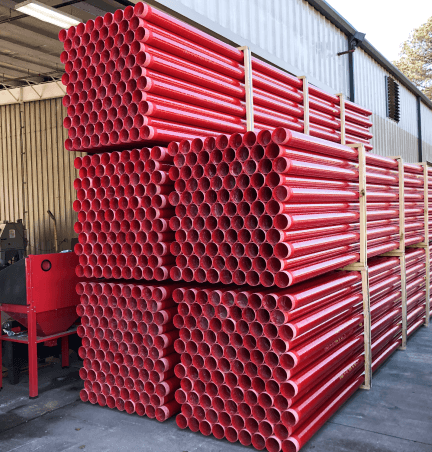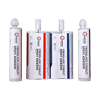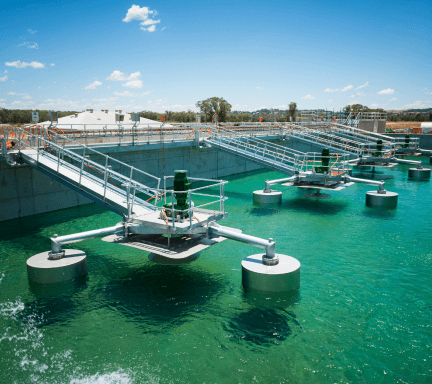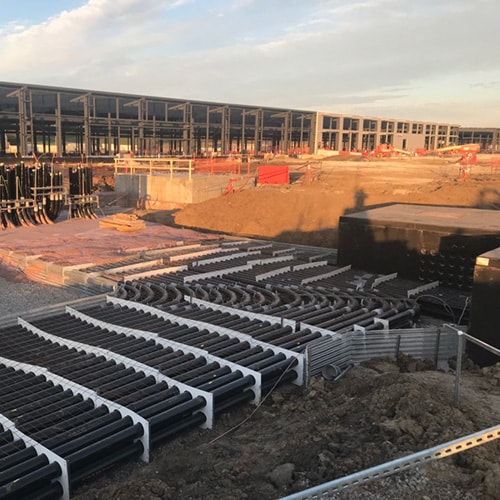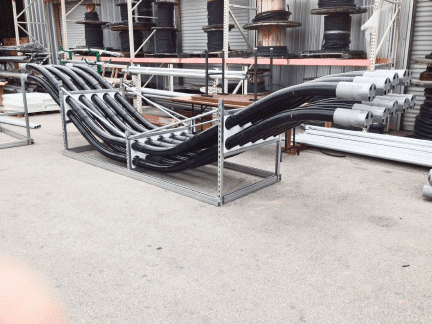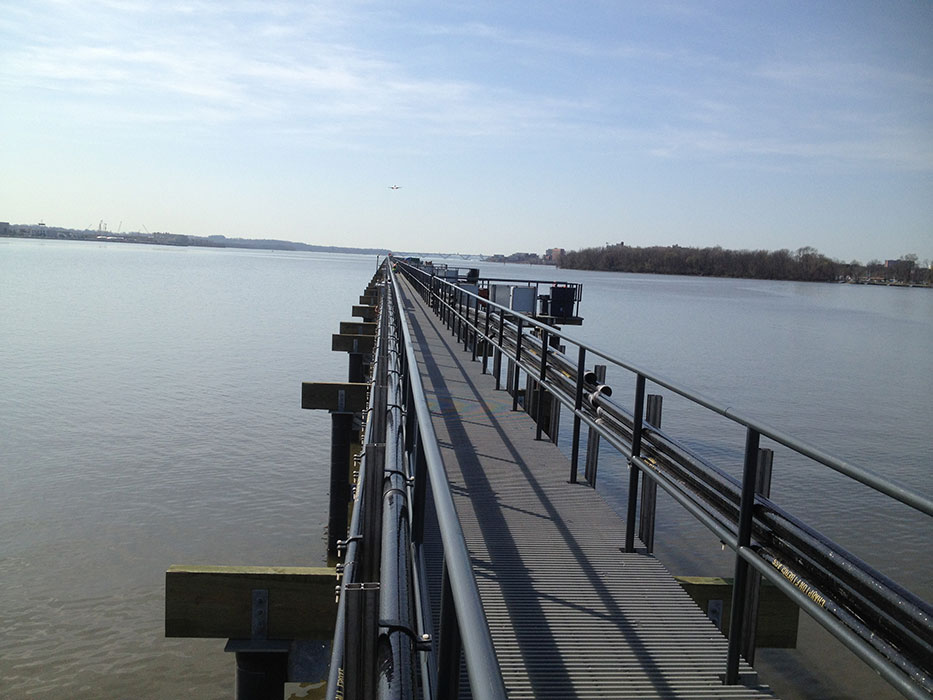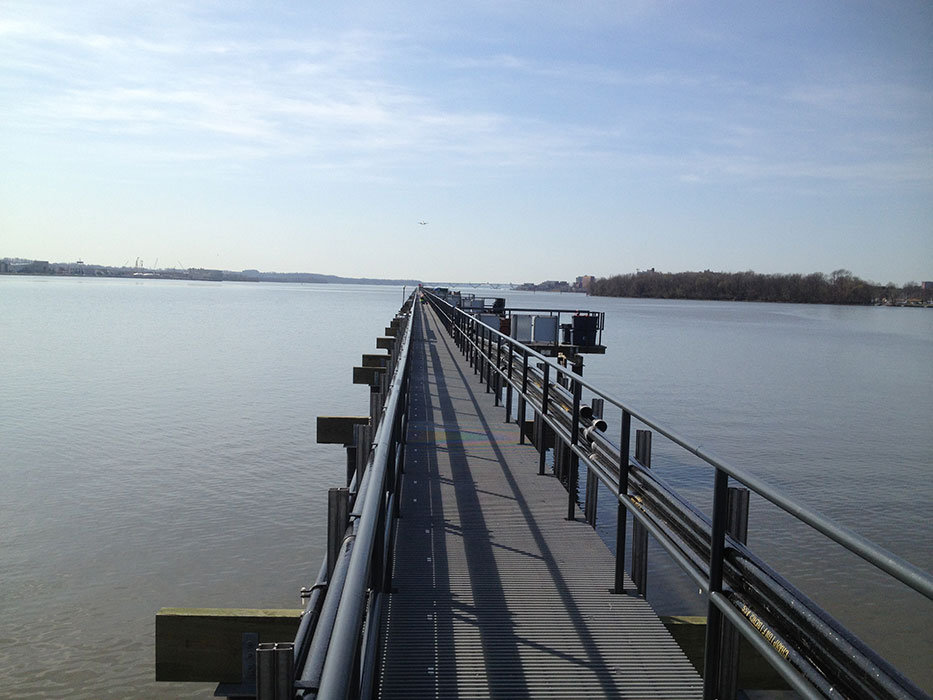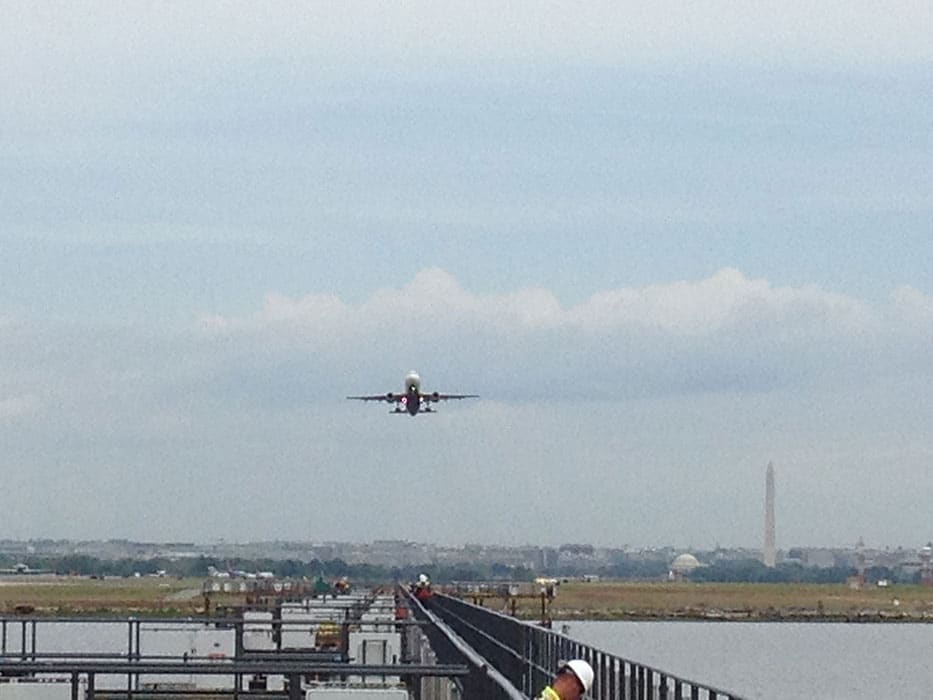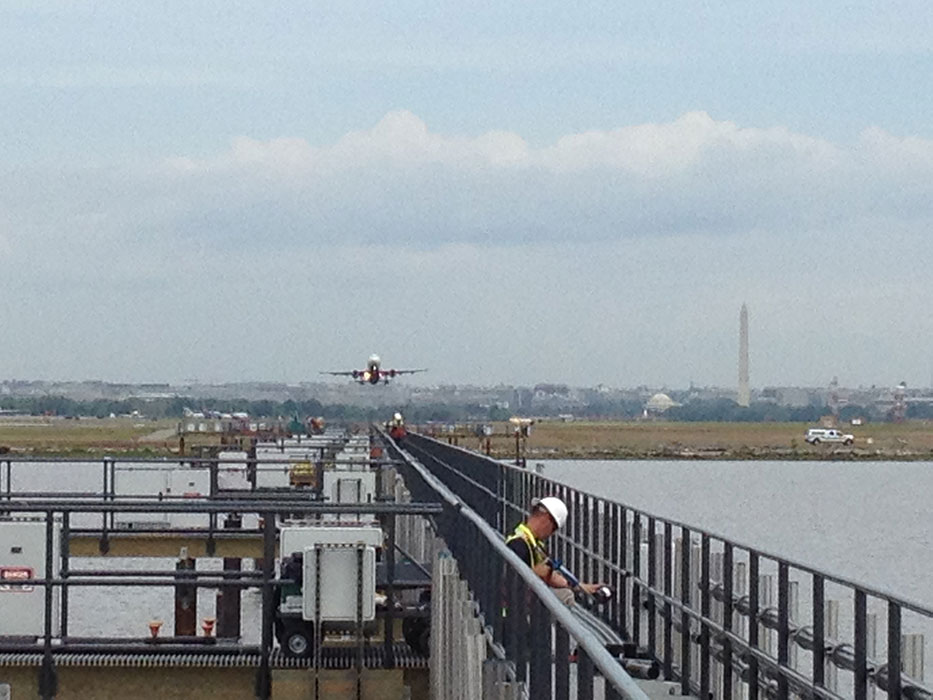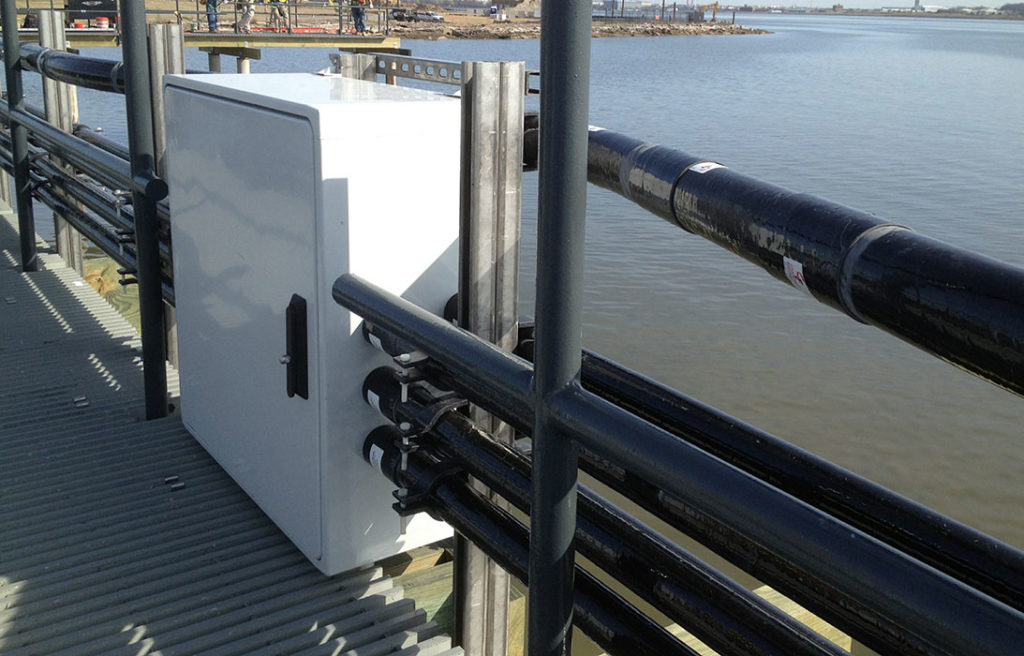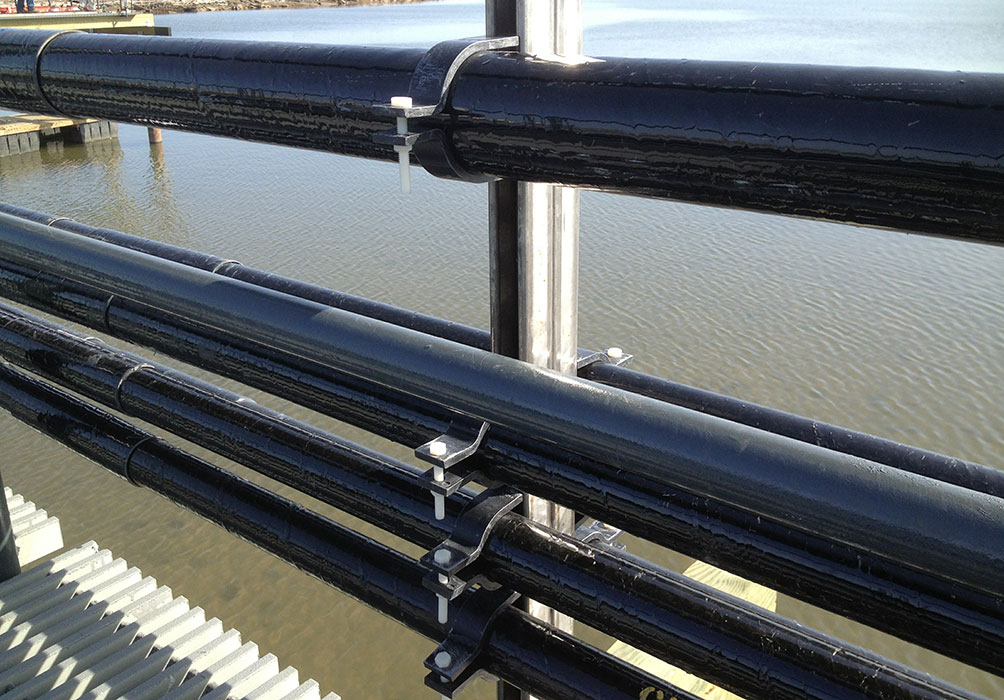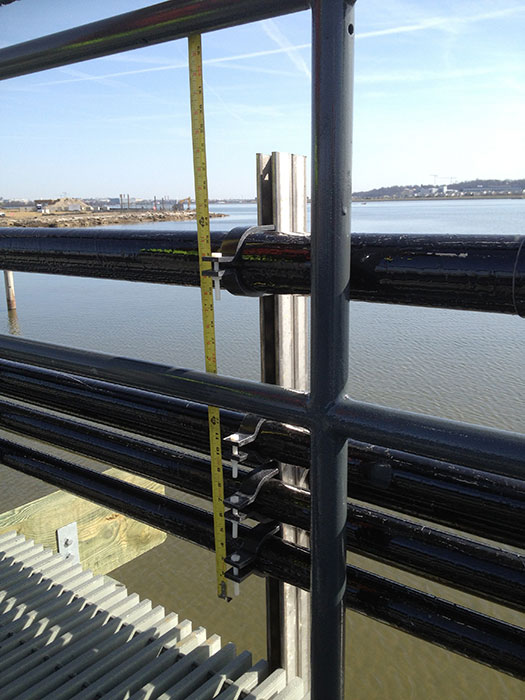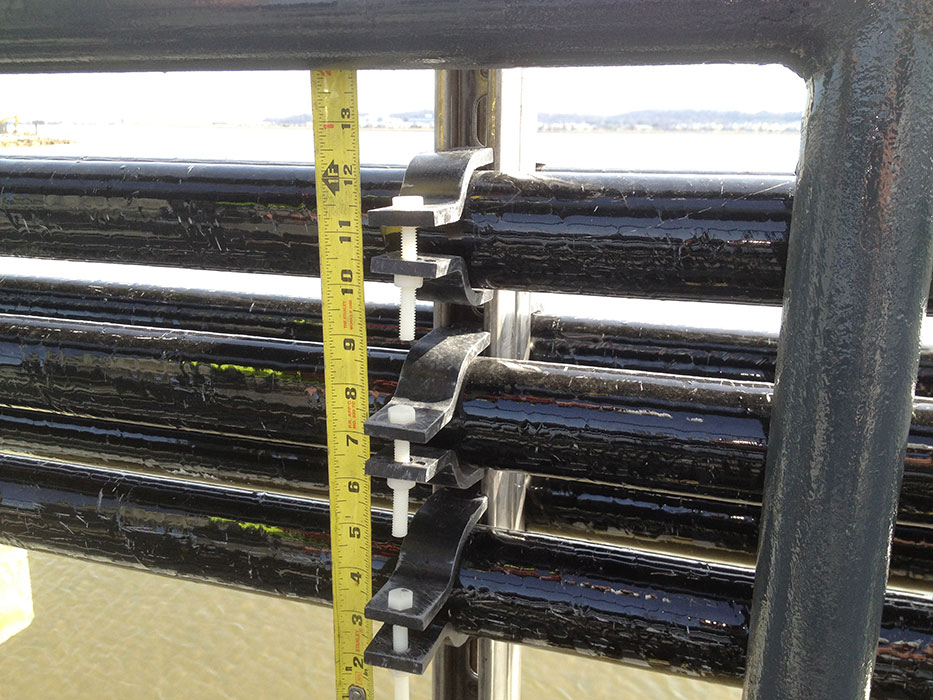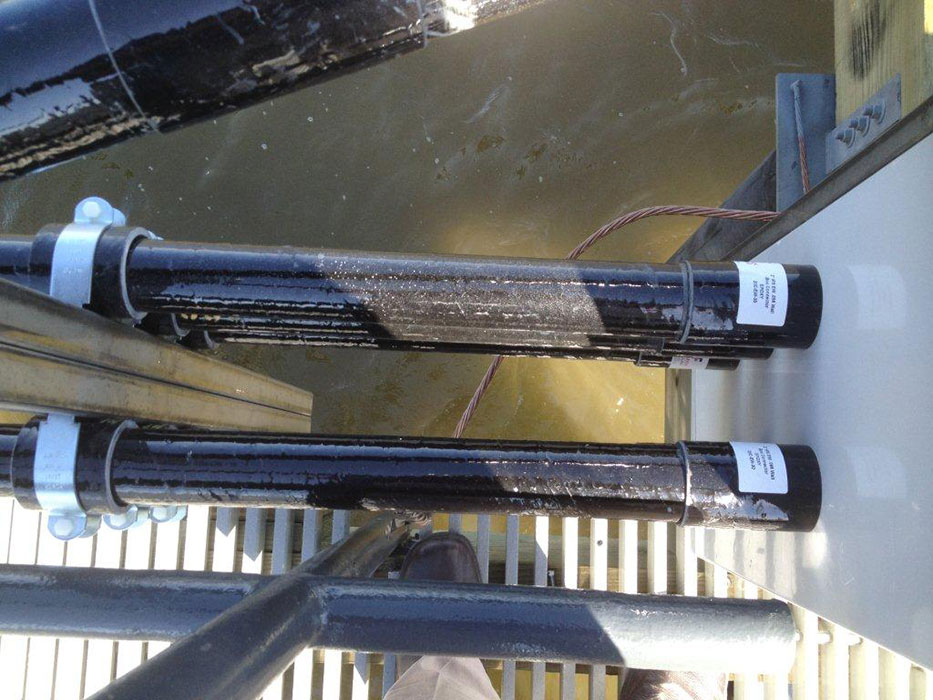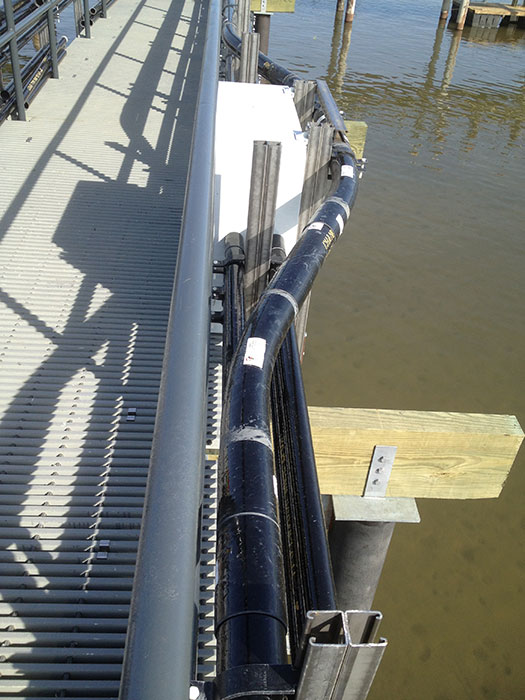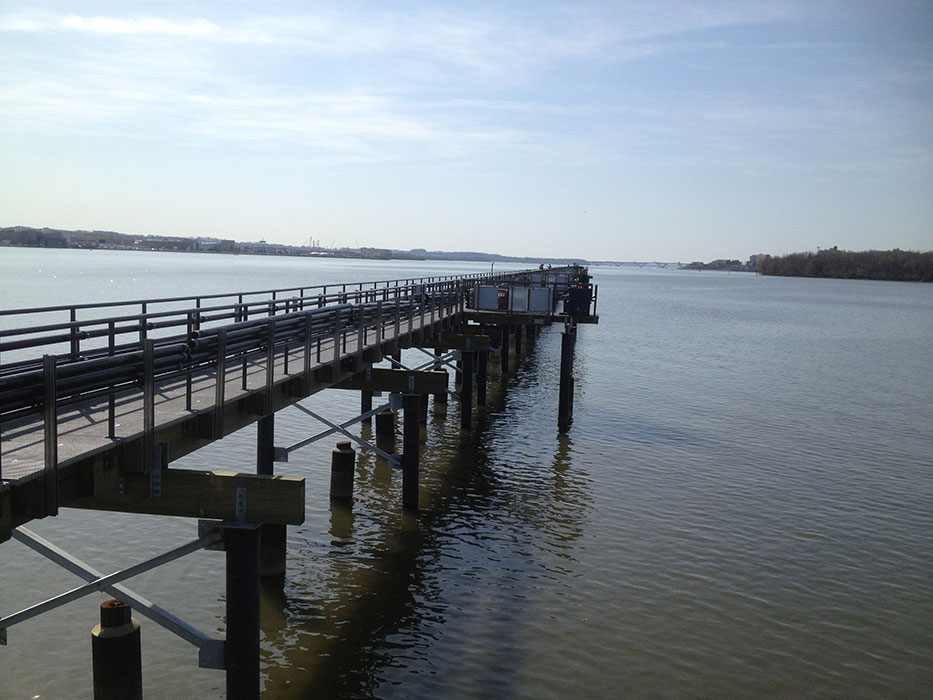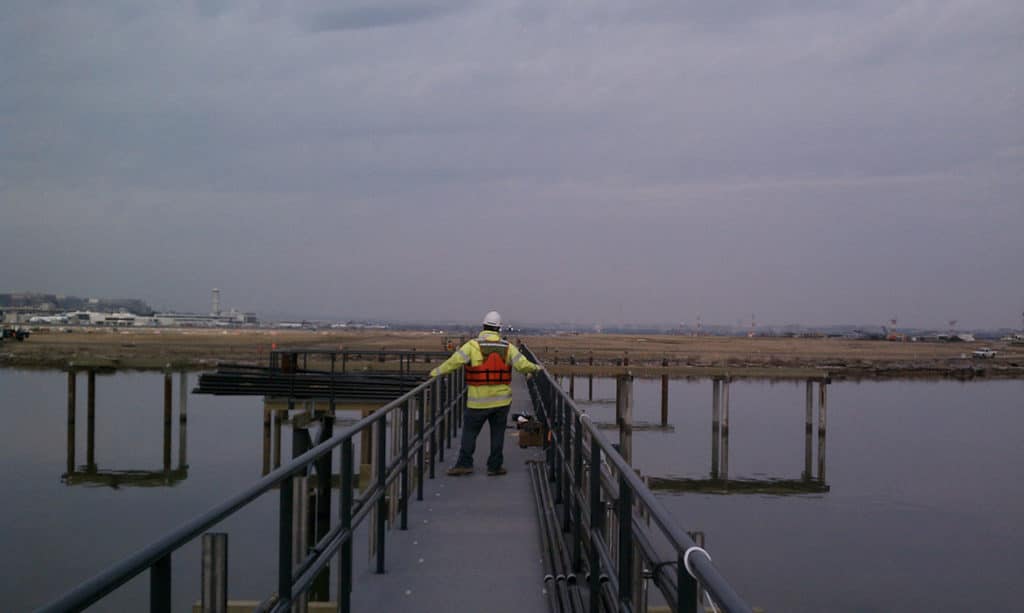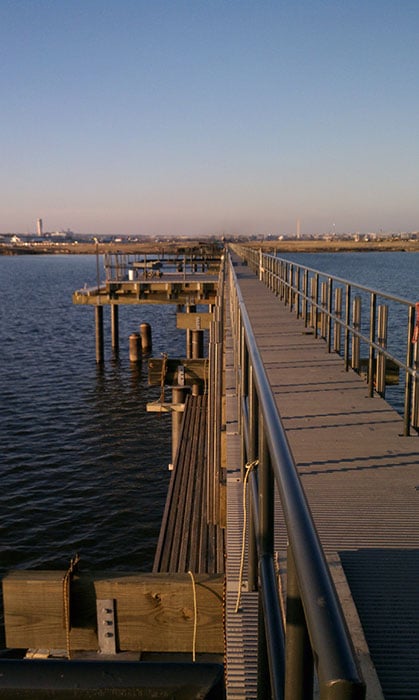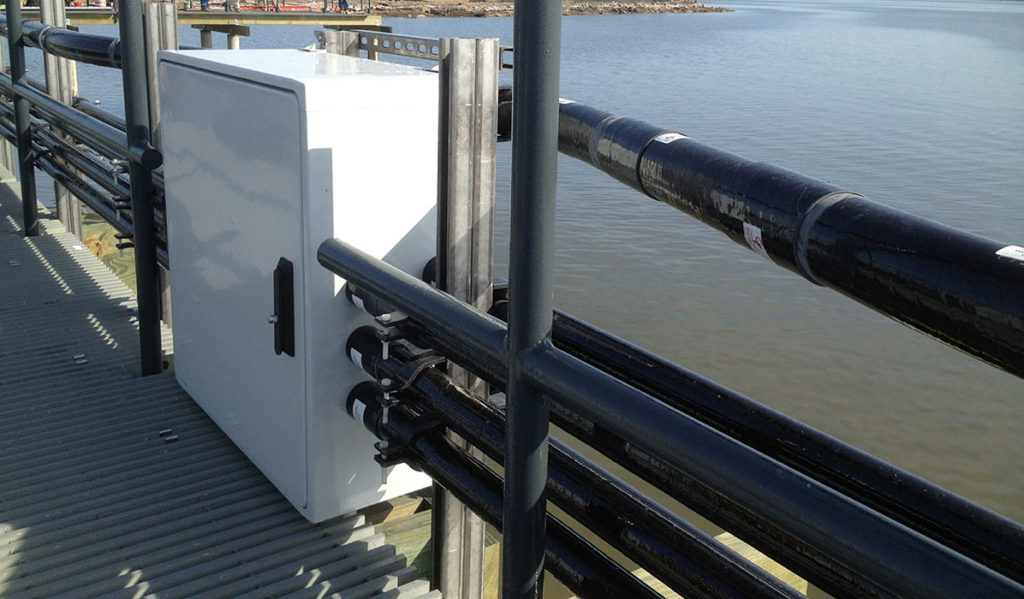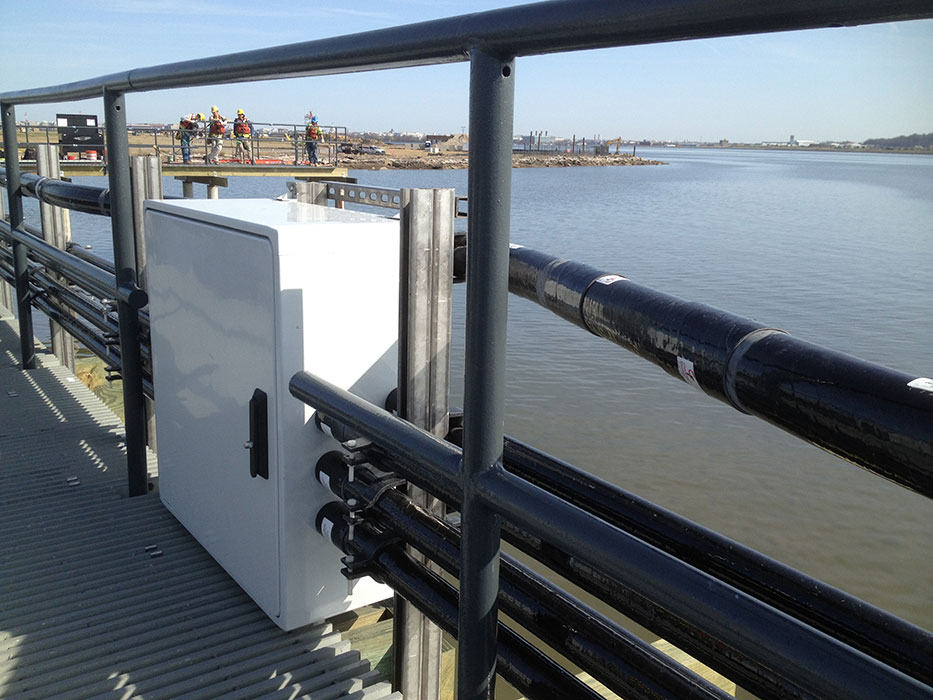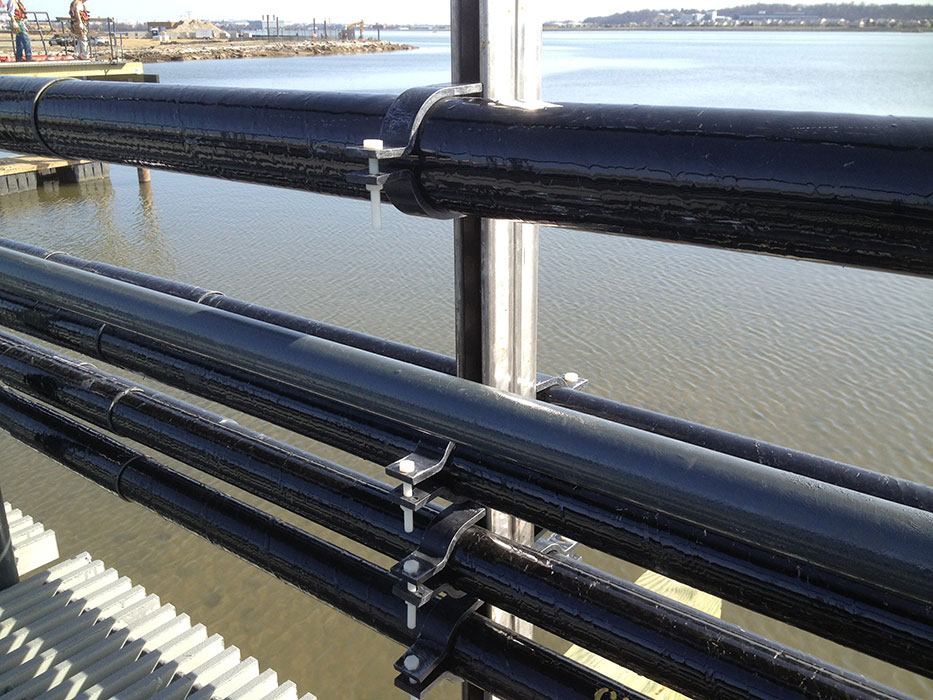Proper lighting is crucial to a successful landing approach in an urban airport setting. With its proximity to our nation’s capital, flying into Washington, D.C.’s Reagan National Airport offers unique challenges. Pilots must avoid designated no-fly zones, so they typically follow the Potomac River in their approach, using bridge lighting as their guide at night. The approach for runway 1-19 runs along a pier that extends into the Potomac River. When Washington Metropolitan Area Transit Authority (WMATA) scheduled an upgrade to existing approach lighting, it required an upgrade in electrical conduit as well.
CHALLENGE
Conduit installations over water can be challenging. Careful thought must go into the logistics of how conduit will be transported to the project site and installed. Often installation happens from a raft or boat. Heavy conduit can be cumbersome and take longer to install. To add to the challenges, installation must occur during off hours when the airport is not operational, due to safety concerns. Additionally, this projected necessitated conduit strong enough to resist corrosion caused by saltwater.
Substantial cost savings in material and labor: fiberglass conduit materials cost one-third that of GRC materials
SOLUTION
Lucky for WMATA, a forward-thinking engineer recognized the logistical and environmental challenges involved with this installation and recommended fiberglass conduit for the job. For this project, Champion Fiberglass conduit offered a significantly lighter weight and was easier to transport. For example, a 10′ piece of 4″ GRC steel weighs 98 lbs. By contrast, a 10′ piece of 4″ Champion Fiberglass conduit weighs 7.8 lbs. Given this information, fiberglass conduit comes in at a weight one-twelfth that of GRC steel. For installation, workers on small rafts appreciated the lighter conduit that was easy to handle. Because Champion Fiberglass conduit features a broad range of corrosion resistance including saltwater, it offers durability to withstand the briny nature of brackish water.
RESULTS
Not only did lightweight fiberglass conduit make a challenging marine installation easier, there were other benefits. Corrosion-resistant Champion Fiberglass conduit offered longevity in the brackish waters of the Potomac River. Lastly, significant cost savings were realized for this job when the materials and installation came in at one-third the price of GRC.
Excellent corrosion resistance in brackish saltwater.








